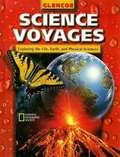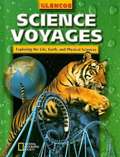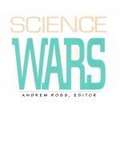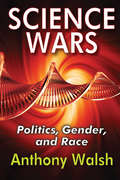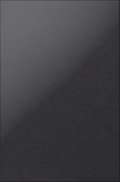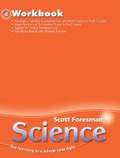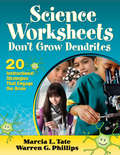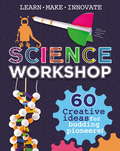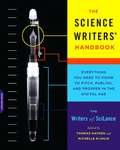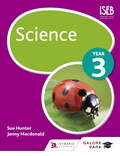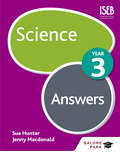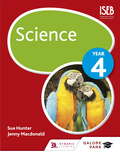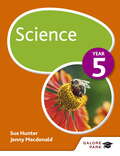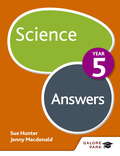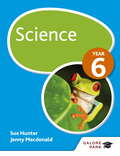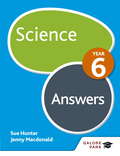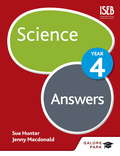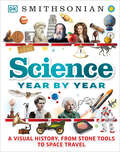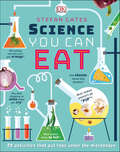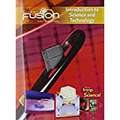- Table View
- List View
Science Voyages: Exploring the Life, Earth, and Physcial Sciences (Level Red)
by Glencoe Mcgraw-HillScience textbook for high school students.
Science Voyages: Level Green (California Edition)
by Mcgraw-Hill StaffScience Life Voyages covers: interactions in the living world, the human body, ecology and life's diversity.
Science Voyages, Level Green: Exploring the Life, Earth, and Physical Sciences
by Glencoe Mcgraw-HillScience Wars
by Andrew RossIn the wake of the highly fractious Culture Wars, conservatives in science have launched a backlash against feminist, multiculturalist, and social critics in science studies. Paul Gross and Norman Levitt's book Higher Superstition, presented as a wake-up call to scientists unaware of the dangers posed by the "science-bashers," set the shrill tone of this reaction and led to the appearance of a growing number of scare stories about an "antiscience" movement in the op-ed sections of newspapers across the country. Unwilling to be political scapegoats for the decline in the public funding of science and the erosion of the public authority of scientists, many of these critics--natural scientists, sociologists, anthropologists, historians, and scholars in cultural studies and literary studies--have taken the opportunity to respond to the backlash in Science Wars.At a time when scientific knowledge is systematically whisked out of the domain of education and converted into private capital, the essays in this volume are sharply critical of the conservative defense of a value-free science. They suggest that in a world steeped in nuclear, biogenic, and chemical overdevelopment, those who are skeptical of technology are more than entitled to ask for evidence of rationality in those versions of scientific progress that respond only to the managerial needs of state, corporate, and military elites. Whether uncovering the gender-laden assumptions built into the Western scientific method, redefining the scientific claim to objectivity, showing the relationship between science's empirical worldview and that of mercantile capitalism, or showing how the powerful language of science exercises its daily cultural authority in our society, the essays in Science Wars announce their own powerful message. Analyzing the antidemocratic tendencies within science and its institutions, they insist on a more accountable relationship between scientists and the communities and environments affected by their research.Revised and expanded from a recent issue of Social Text, Science Wars will provoke thought and controversy among scholars and general readers interested in science studies and current cultural politics.Contributors. Stanley Aronowitz, Sarah Franklin, Steve Fuller, Sandra Harding, Roger Hart, N. Katherine Hayles, Ruth Hubbard, Joel Kovel, Les Levidow, George Levine, Richard Levins, Richard C. Lewontin, Michael Lynch, Emily Martin, Dorothy Nelkin, Hilary Rose, Andrew Ross, Sharon Traweek, Langdon Winner
Science Wars: Politics, Gender, and Race
by Anthony WalshFew issues cause academics to disagree more than gender and race, especially when topics are addressed in terms of biological differences. To conduct research in these areas or comment favorably on research can subject one to scorn.When these topics are addressed, they generally take the form of philosophical debates. Anthony Walsh focuses upon such debates and supporting research. He divides parties into biologists and social constructionists, arguing that biologists remain focused on laboratory work, while constructionists are acutely aware of the impact of biologists in contested territories.Science Wars introduces the ideas motivating the parties and examines social constructionism and its issues with science. He explores arguments over conceptual tools scientists love and constructionists abhor, and he provides a solid discussion of the co-evolution of genes and culture. Walsh then focuses his attention on gender, how constructionists view it, and the neuroscience explanation of gender differences. Moving to race, Walsh looks at how some have tried to bury the concept of race, while others emphasize it. He considers definitions of race—essentialist, taxonomic, population, and lineage—as they have evolved from the time of the Enlightenment to the present. And finally, he attempts to bring the opposing sides together by pointing out what each can bring to a meaningful discussion.
Science Without Laws: Model Systems, Cases, Exemplary Narratives
by Angela N. H. Creager Elizabeth Lunbeck M. Norton WisePhysicists regularly invoke universal laws, such as those of motion and electromagnetism, to explain events. Biological and medical scientists have no such laws. How then do they acquire a reliable body of knowledge about biological organisms and human disease? One way is by repeatedly returning to, manipulating, observing, interpreting, and reinterpreting certain subjects--such as flies, mice, worms, or microbes--or, as they are known in biology, "model systems. " Across the natural and social sciences, other disciplinary fields have developed canonical examples that have played a role comparable to that of biology's model systems, serving not only as points of reference and illustrations of general principles or values but also as sites of continued investigation and reinterpretation. The essays in this collection assess the scope and function of model objects in domains as diverse as biology, geology, and history, attending to differences between fields as well as to epistemological commonalities. Contributors examine the role of the fruit fly Drosophila and nematode worms in biology, troops of baboons in primatology, box and digital simulations of the movement of the earth's crust in geology, and meteorological models in climatology. They analyze the intensive study of the prisoner's dilemma in game theory, ritual in anthropology, the individual case in psychoanalytic research, and Athenian democracy in political theory. The contributors illuminate the processes through which particular organisms, cases, materials, or narratives become foundational to their fields, and they examine how these foundational exemplars--from the fruit fly to Freud's Dora--shape the knowledge produced within their disciplines. Contributors Rachel A. Ankeny Angela N. H. Creager Amy Dahan Dalmedico John Forrester Clifford Geertz Carlo Ginzburg E. Jane Albert Hubbard Elizabeth Lunbeck Mary S. Morgan Josiah Ober Naomi Oreskes Susan Sperling Marcel Weber M. Norton Wise
Science Workbook: Grade 5
by Scott ForesmanThis Grade 5 workbook covers life science, earth science and physical science.
Science Worksheets Don't Grow Dendrites: 20 Instructional Strategies That Engage the Brain
by Marcia L. Tate Warren G. PhillipsA brain-friendly guide for motivating students to live, eat, and breathe science! The authors outline 20 proven brain-compatible strategies, rationales from experts to support their effectiveness, and more than 250 activities for incorporating them. Teachers will find concrete ways to engage students in science with visual, auditory, kinesthetic, and tactile experiences that maximize retention, including: Music, rhythm, rhyme, and rap Storytelling and humor Graphic organizers, semantic maps, and word webs Manipulatives, experiments, labs, and models Internet projects
Science Workshop: 60 Creative Ideas for Budding Pioneers
by Anna ClaybourneLearn, make and innovate with this bumper book packed with sixty projects. Science Workshop is the go-to guide for creative and unique experiments. With chapters on art, food, nature, pure science and technology, this book will have a great 'make' for you. Step-by-step instructions can help you:-Take to the skies with a plane inspired by the Wright brothers-Light up the world with a neon sign influenced by artist Tracy Emin-Construct a stunt ramp to get to grips with forces like Galileo Galilei-And much, much more! All the projects in Science Workshop are prompted by featured profiles of great scientists, artists and engineers. Learn about and create the experiments and builds that have led to world-changing discoveries, amazing machines and inspiring artworks. Perfect for KS2 science and technology classes aged 9 and up.
The Science Writers' Handbook: Everything You Need to Know to Pitch, Publish, and Prosper in the Digital Age
by Thomas Hayden Michelle NijhuisPopular science writing has exploded in the past decade, both in print and online. Who better to guide writers striving to succeed in the profession than a group of award-winning independent journalists with a combined total of 225 years of experience? <P><P>From Thomas Hayden’s chapter on the perfect pitch to Emma Maris’s advice on book proposals to Mark Schrope’s essential information on contracts, the members of SciLance give writers of all experience levels the practical information they need to succeed, as either a staffer or a freelancer. Going beyond craft, The Science Writer’s Handbook also tackles issues such as creating productive office space, balancing work and family, and finding lasting career satisfaction. It is the ultimate guide for anyone looking to prosper as a science writer in the new era of publishing.
Science Year 3
by Sue Hunter Jenny MacdonaldScience Year 3 goes beyond the requirements of the new National Curriculum and builds an excellent foundation for scientificunderstanding, exploring the study of our bodies, vertebrates and invertebrates, light and shadow, materials, rocks and dinosaurs. Together with Science Year 4, this book is ideal to underpin a course of study leading to Common Entrance and other independent school entrance exams at 11+- Endorsed by ISEB- Packed with challenging exercises and practical activities to stimulate and enthuse young scientists- 'Did you know?' boxes encourage an active interest in science and the world around us- Rigorous extension questions will stretch and challenge the most able
Science Year 3 Answers
by Sue Hunter Jenny Macdonald- Clear layout saves time marking work - Enables efficient assessment of pupils' strengths and weaknesses - Includes diagrams and working where necessary, to demonstrate how to present answers
Science Year 4
by Sue Hunter Jenny MacdonaldScience Year 4 covers all relevant topics including habitats, plants, solids, liquids and gases, electrical circuits and friction. Rigorous exercises and scientific activities throughout are certain to challenge and engage young scientists. Together with Science Year 3, this book is ideal to underpin a course of study leading to Common Entrance and other independent school entrance exams at 11+.- Endorsed by ISEB- Packed with challenging exercises and practical activities to stimulate and enthuse young scientists- 'Did you know?' boxes encourage an active interest in science and the world around us- Rigorous extension questions will stretch and challenge the most able
Science Year 5
by Sue Hunter Jenny MacdonaldExam Board: ISEBLevel: KS2Subject: ScienceFirst Teaching: September 2015First Exam: June 2017A stimulating and rigorous approach to Science that goes beyond the requirements of the National Curriculum for Year 5 pupils (aged 9 and above) preparing for Common Entrance and other independent entrance exams at 11+o Endorsed by ISEB to ensure full coverage of the Common Entrance 11+ syllabuso Develop key skills with clear explanations and diagramso Explore scientific concepts with lots of practical activitieso Challenge understanding with varied exercises and extension questionsGalore Park Science Year 5 Answers is available to purchase from the Galore Park website www.galorepark.co.uk
Science Year 5
by Jenny Macdonald Sue HunterA stimulating and rigorous approach to Science that goes beyond the requirements of the National Curriculum for Year 5 pupils (aged 9 and above) preparing for Common Entrance and other independent entrance exams at 11+o Endorsed by ISEB to ensure full coverage of the Common Entrance 11+ syllabuso Develop key skills with clear explanations and diagramso Explore scientific concepts with lots of practical activitieso Challenge understanding with varied exercises and extension questionsGalore Park Science Year 5 Answers is available to purchase from the Galore Park website www.galorepark.co.uk
Science Year 5 Answers
by Sue Hunter Jenny MacdonaldClear layout saves time marking work Enables efficient assessment of pupils' strengths and weaknesses Includes diagrams and working where necessary, to demonstrate how to present answers
Science Year 6
by Sue Hunter Jenny MacdonaldExam Board: ISEBLevel: KS2Subject: ScienceFirst Teaching: September 2015First Exam: June 2017A stimulating and rigorous approach to Science that goes beyond the requirements of the National Curriculum for Year 6 pupils (aged 10 and above) preparing for Common Entrance and other independent entrance exams at 11+ o Endorsed by ISEB to ensure full coverage of the Common Entrance 11+ syllabuso Develop key skills with clear explanations and diagramso Explore scientific concepts with lots of practical activitieso Challenge understanding with varied exercises and extension questionsGalore Park Science Year 6 Answers available to purchase from the Galore Park website: www.galorepark.co.uk
Science Year 6
by Jenny Macdonald Sue HunterA stimulating and rigorous approach to Science that goes beyond the requirements of the National Curriculum for Year 6 pupils (aged 10 and above) preparing for Common Entrance and other independent entrance exams at 11+ o Endorsed by ISEB to ensure full coverage of the Common Entrance 11+ syllabuso Develop key skills with clear explanations and diagramso Explore scientific concepts with lots of practical activitieso Challenge understanding with varied exercises and extension questionsGalore Park Science Year 6 Answers available to purchase from the Galore Park website: www.galorepark.co.uk
Science Year 6 Answers
by Sue Hunter Jenny MacdonaldExam Board: ISEBLevel: KS2Subject: ScienceFirst Teaching: September 2015First Exam: Summer 2017Clear layout saves time marking work. Enables efficient assessment of pupils' strengths and weaknesses. Includes diagrams and working where necessary, to demonstrate how to present answers.
Science Year 6 Answers
by Jenny Macdonald Sue HunterClear layout saves time marking work Enables efficient assessment of pupils' strengths and weaknesses Includes diagrams and working where necessary, to demonstrate how to present answers
Science Year by Year: A Visual History, From Stone Tools to Space Travel (DK Children's Year by Year)
by DKThis epic journey of scientific discovery starts in ancient times and travels through centuries of invention before fast forwarding into the future. From simple machines to modern-day marvels, you&’ll follow incredible illustrated timelines that plot the entire history of science and highlight the most momentous discoveries. A jaw-dropping collection of more than 1,500 photographs, illustrations, maps, and graphics charts the evolution of science year by year, century by century. You&’ll meet influential inventors and famous faces from the past, including Aristotle, Leonardo da Vinci, Isaac Newton, Charles Darwin, Marie Curie, and Stephen Hawking. You&’ll visit places of scientific importance, such as prehistoric cave art, Stonehenge, Hiroshima and the first atomic bomb, the Moon landings, and the Higgs boson particle. These huge events are made simple thanks to eye-catching images, helpful timelines, and accessible, informative text. Landmark people and periods are combined in this one stunning volume for children, showcasing the ideas, experiments, and technologies that have shaped our daily lives and transformed the world today. Aspiring scientists, get ready for a time traveling trip like no other.
Science You Can Eat: 20 Activities that Put Food Under the Microscope
by Stefan GatesDiscover the incredible, edible science that happens every time you cook, bake, or eat with this children's ebook that is part-cookbook, part-science reference.This exciting kids' ebook tackles all the tasty science questions you have about food - plus plenty more that you hadn't even thought of! Science You Can Eat will transform your kitchen into an awesome lab through 20 fun food experiments.This quest of gastronomic wonder is so much more than just another science ebook for kids! It explores the science of food by asking questions you're hungry to know the answers to and putting them to the test through fun experiments.Cooking is just delicious chemistry, and the science experiments in this adorable kids cookbook will prove it. Once you understand science, you understand food. Find out why popcorn goes "pop" as you test it out for yourself. Explore how taste is affected by smell, know if carrots really can turn you orange, and finally discover whether eating insects is the future of food.There is a fantastic mix of fun facts and knowledge, context, and science experiments for kids in this educational ebook. The experiments are easy to execute at home with things you have around the kitchen. The instructions are detailed but easy to understand, so some kids could even adventure solo through its pages.Enjoy the delightful weirdness of tricking your taste buds, making slime taste delicious, investigating some of the strangest flavors around, and extracting iron from your cereal! Science You Can Eat helps your little one understand what's happening with their food and why. Each page is guaranteed to leave you hungry for more - we'd wager even adults will learn a thing or two from this culinary escapade.Explore, Experiment, And Learn!Explore the world of weird, mind-blowing, and often gloriously revolting (but tasty) science behind the food we eat; from why onions make us cry to the sticky science of chewing gum.Packed with activities for kids that allow you to use the power of science in the most delicious way. You'll concoct color-changing potions, make scrumptious ice-cream in an instant, and much, much more.Embark on this incredible edible adventure with TV presenter Stefan Gates AKA &“The Gastronaut&” and turn the things we eat from the ordinary into the extraordinary. Some of food fueled science you'll learn about:- Unusual foods- The world's smelliest fruit- Salt and other marvelous minerals- Ways of cooking- Drinks that glow and so much more!
ScienceFusion: Introduction to Science and Technology
by Houghton Mifflin HarcourtScience Fusion Introduction to Science and Technology.
